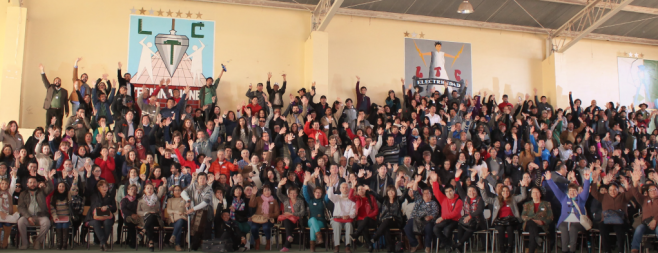Noticias
October News
What's new @LATINNO?
DATABASE PROGRESS
We keep growing fast!
The LATINNO team has been working nonstop on increasing the number of democratic innovations registered on our database. We are proud to announce that we are very close to reaching 2000 cases from 18 countries and that by the end of the year, some of these initiatives will already be available on our website!
Latinno reports: Democratic innovations to overcome the digital divide
E-government in Latin America arrived in the early 21st century amidst a period of intense restructuring of the public sector, and even though digital channels have been sprouting throughout the continent, a colossal digital divide among and within its countries remains visible. The lack of accessible internet connection and digital illiteracy are problems yet to be dealt with, alongside the region’s pronounced social and economic inequality. But despite these challenges, governments and civil society organizations have been taking advantage of digital tools to design new and creative forms of enhancing citizen involvement and improving living conditions throughout the continent.
For these reasons, and within the framework of one of the sub-projects withinLATINNO, our team has been recently focusing on democratic innovations that draw upon information and communication technologies (ICTs) as they are aimed at engaging citizens and boosting participation for the development, support and delivery of policies and services. The importance of ICTs as an accelerator of public administration, sustainable development, education and life quality has come to a point of acknowledgement that allows for a rapid growth within democratic systems in more recent years.
Furthermore, we have been gathering information also on forms of E-democracy that do not directly engage citizens but expand governance. The cases we have gathered so far range from more institutionalized designs such as crowdsourcing legislation, interactive administration, collaborative policy platforms, and online and multi-channel participatory budgeting; to governmental, civil society and private labs and experimental hubs dedicated to open government, big data and transparency initiatives. Thus, we have surveyed over 150 initiatives in 4 Latin American countries (Mexico, Colombia, Argentina and Peru), assessing variations among type of organization in charge, means and ends, and impact on the policy cycle.
FEATURED CASE OF THE MONTH

The Participatory Stage of the Constitutional Reform Process in Chile
In October 2015, Chile began a process of constitutional reform focused - from the very beginning - on promoting citizen participation. The aim was to incorporate proposals and comments from citizens, acquired through face-to-face and online means, into the final text. Citizen meetings were set up firstly at the local level (Encuentros Locales), then at the county level (Cabildos Provinciales), and finally at the regional level (Cabildos Regionales). A specific chapter for the indigenous peoples was also included, and they could attend participatory meetings in any region of the country to discuss its content.
By 2016, around 100,100 people took part in local meetings, 12,850 people, in county meetings and 8,000, in regional meetings. This significant citizen involvement confirms that the participatory stage of the constitutional reform process in Chile is a new milestone in civic engagement in public decision-making process in Latin America.
The process also encouraged citizens to organize and promote their own, complementary spaces of participation. Two cases registered on the LATINNO database, Plataforma Ciudadanos Constituyentes and #TuConstitución, are excellent examples of such spaces. Both are civil society initiatives aimed at contributing to the constitutional debate through ideas and specific documents.
